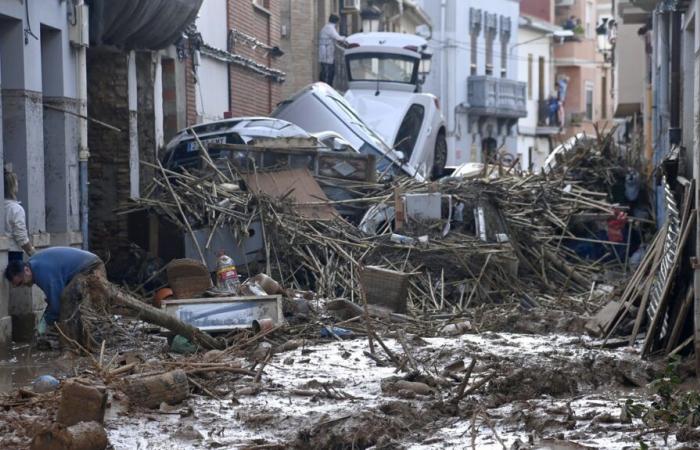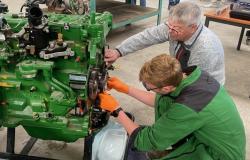
“I never thought I would experience this”confided a resident of Sedavi, a town of 10,000 inhabitants located in the province of Valencia devastated by the deadly bad weather which has affected Spain since Tuesday October 29. These “floods of the century” have already caused at least 158 deaths and impressive material damage. An assessment that puts a central question back on the table: are we ready to face the inevitable consequences of climate change?
The New Republic asked Gaël Musquet, specialist in natural disaster prevention.
Are we prepared enough for such events?
“We have made progress but we can do much better. We hear it in the testimonies, people are not necessarily aware of what can happen in their territory, in their home, their work, their children's school…
“They do not know all the legal documents that have been produced to prevent these events. In France, there are in particular those made available on the site georisks.gouv.fr and the municipal information documents on major risks. »
At this level, are the Spaniards behind the French?
“I won't go that far, because in my job I have learned a lot from Hispanics. Their approach is perhaps less documented, less regulatory, but we have a lot to learn from them about solidarity and social organization in the face of these events. On the other hand, what we are certain of is that they have created their own vulnerability. »
That's to say ?
“After the 300 deaths in the great flood of 1957 in Valencia, an area of 90 km² around the city was drained so that the river would bypass it. The city and its surroundings have been urbanized. But by building in an area that previously had orchards and could absorb water, a new vulnerability was created.
“It’s a lesson for us too in France. If these areas had remained orchards or agricultural land, with such an event, we would have spoken of an agricultural calamity, not of deaths. We would have been talking about torrential rains, not gutted houses. »
Now that this urbanization has already taken place, what should we do?
“The question we will have to ask ourselves is the following: economically, do we have the means to create protections? While knowing that in certain neighborhoods this will not be enough. If it is not possible to protect the population, while security is a fundamental human right, another question will arise: how to compensate people so that they move to an area where they are safe? »
There are also issues related to the way in which populations are alerted. In the case of Valencia, criticism is being heard. What do you think?
“The weather services did their job by triggering a red alert. But the question of what is done with this vigilance by communities is a complex subject. Because, once the alert is given, we must be able to measure the phenomenon. However, sometimes the event is so brutal that it blinds you. For example in the event of a power or network outage, which prevents you from being aware and broadcasting an alert. »
To anticipate as best as possible, you advocate role-playing exercises. Are we doing enough?
“No, that’s precisely where we sin. In the documents that I mentioned earlier, there are measures that communities and individuals must implement to protect themselves. But very few communities do exercises. I faced refractory elected officials, some even told me that the subject was not interesting. »
Why do these exercises seem essential to you?
“As long as the population has not experienced first-hand what it will require of them to leave their homes, to evacuate elderly people, people with disabilities or babies, they cannot anticipate it. The terrain does not lie. »
You yourself are a victim of Hurricane Hugo, which hit Guadeloupe in 1989. What did that teach you?
“We need to talk to the children!” I was a child and if I got involved as I grew up, it was because the adults around me left room for hope. They didn't tell me it was the end of the world.
“We have a responsibility as adults to support children, to stimulate their imaginations so that they can find the tools to get through it. If the generation of those who are currently in charge, and who have failed to adapt, does not pass on the tools for the next generation to evolve, we will not survive. »





